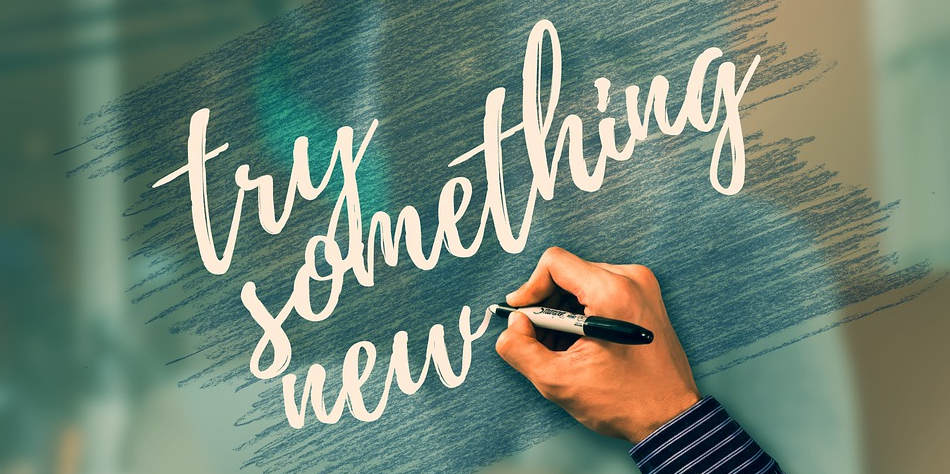Are You “Shoulding” All Over Yourself?
I think the idea of "shoulding all over yourself" comes from Tony Robbins.
In other words, instead of doing stuff that would improve your life, they remain as "shoulds"...
I should walk 5000 steps a day...I should email 5 new people a day...I should start counting calories.
I found a very interesting article the other day called:
Forget The 10,000-Hour Rule; Edison, Bezos, & Zuckerberg Follow The 10,000-Experiment Rule
The 10,000 hour rule was popularized by Malcolm Gladwell. The idea is that you need 10,000 hours of deliberate practice to become a world-class performer in any field...To achieve 10,000 hours of deliberate practice requires three hours of deliberate practice per day for 10 years.
.
That's great if you're 12 or 22 but if you're 42 or 52 or 62, it can be a little disheartening to think you'd have to do anything for 3 hours a day for 10 YEARS to reach a goal.
.
What Michael Simmons writes about in his article is the concept of doing experiments...often quick ones, that don't take hours.
.
Depending on the size of the experiments, 10,000 could be done in a fraction of 10,000 hours with fantastic results.
.
I was first introduced to this concept of experimenting many years ago in a book called "The Max Strategy" by Dale Dauten.
.
It's now been renamed, "Experiments Never Fail" because that was the title the author originally wanted.
.
I imagine, one of the reasons we "should all over ourselves" in one way or another is that we think what we want to try won't work out...we'll fail.
.
Fact is, most stuff we try WILL fail...9 out of 10 or 99 out of 100.
>
That's why it's important to try small, quick experiments if at all possible.
.
If you take the "Experiments Never Fail" philosophy to heart, you start looking at failures as "results".
.
My favorite highlight from the book is "play around and see what happens".
.
Don't take things so seriously.
.
Last year, in the middle of the pandemic I sent out dozens of images on LinkedIn that looked like this...
.
 .
.
Obviously, I personalized each one.
.
I can't recall how many responded but it was north of 40% which is very good for cold outreach.
.
Of course, we don't know how it would have done during "normal" times but I expect it would be similar.
.
Why?
.
It was different.
.
I suspect some people were NOT amused and that's OK...I probably wouldn't have enjoyed talking to them.
.
I do remember I did get a funny two-word response..."no, thanks".
.
I did have one follow-up. If they didn't respond to my first message, I sent this...
.
.

.
And I always got a few more responses.
.
.
Author Tom Peters has some interesting quotes about "experimenting...
.
"I don't trust visions, plans or goals. Just jump into the damn water and start flailin'"
.-"Life is pretty simple: You do some stuff. Most fails. Some works. You do more of what works. If it works big, others quickly copy it. Then you do something else. The trick is the doing something else.”
.
His main message is do a lot of stuff, most will fail but you'll inevitably stumble on things that do work and you should do MORE of that!
.
I've modified what he has said to...
.
"fail fast, fail often, fail cheap."
.
James Altucher released a new book this week called Skip the Line: The 10,000 Experiments Rule and Other Surprising Advice for Reaching Your Goals
.
From the book...
.
So what makes a good experiment?
.
It's easy to set up and do. This is critical because you need to be able to run many experiments until you make a great discovery.
.
There's little downside. For instance, if you develop a cure for the flu you don't want to simply take the medication and see if it works. You might die! This is why scientists experiment on mice or in stimulation. Similarly your experience need to be low-risk.
.
There's huge potential upside. If the experiment works, then perhaps this can lead to a million dollar business or a successful book or a promotion or meeting the love of your life. Who knows?
.
It's never been done before. At the very least YOU will have never done it before - this is why you are experimenting. But some aspect of your experiment will probably imply nobody has ever done it before.
.
You're learning something. No matter what, success or "failure", the experiment will teach you something. By doing the experiment, you'll either add to your personal knowledge or you'll add to the overall knowledge of the world in some tiny way.
.
There are only two possible results: you either learn something... Or the experiment succeeds. There is no failure.
.
We're almost at the start of a new month.
.
What experiment could you start next month or today?
.
Tell me in the comments or don't. I'm experimenting! 🙂
.
P.S. I just found evidence of my "WEIRDEST" experiment from 1990 or 1991...
.

I started a neighbor’s letter campaign; I do not mention real estate. At the end, there is a PS offering my digital or hard copy book, I will let you know what happens – if anything happens!
Excellent, Liz! I love direct mail experiments. Keep swinging and keep me posted.
Hi Leo, I love your 10,000 experiments idea! I’ve just read about it tonight, so I have some thinking to do, but as a start… I’m going to try to sell one currently owned, unused item of ours on marketplace every week. Of course the goal will be to sell more, but I have to start somewhere! I’ll keep you posted on my progress
Thanks for the great idea!!